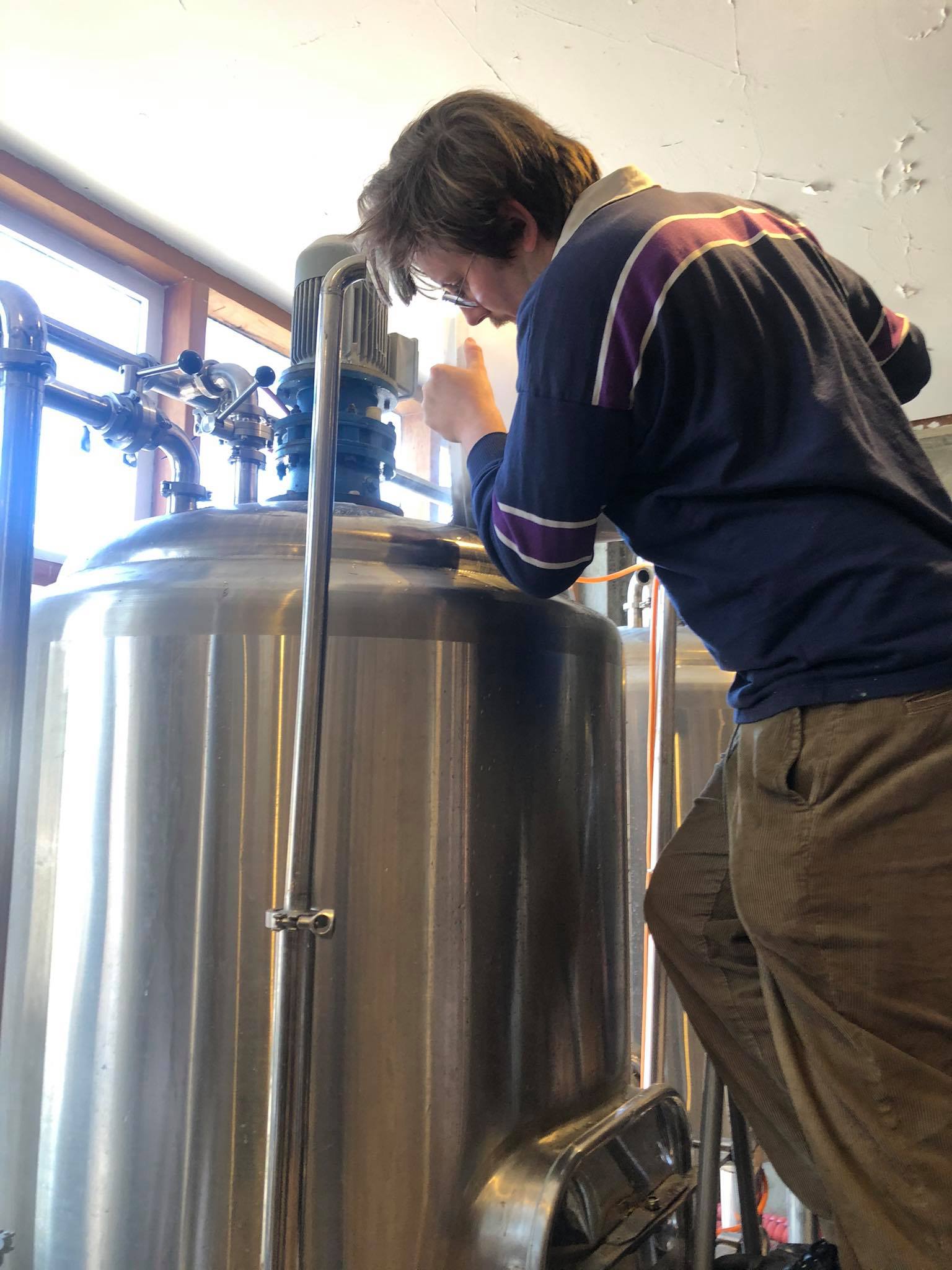Master’s student explores Wellington’s heritage through food and beer

Henry developed two new events—Dinner and Discussion at the Green Parrot restaurant and the Heritage Beer and Quiz with Waitoa Social Club. “There are no limitations on what can be considered as heritage or on how the past can be celebrated, and I wanted to use that to try these new events.”
For the first event, Henry contacted food historian David Burton and researched Greek immigration to New Zealand in the post-war period (1950s–60s) when Greek restaurants began to open in Wellington, including the most famous and oldest, the Green Parrot.
“The Greek migration wave to Wellington was one of the first times Wellingtonians were exposed to international food stuffs, so I wanted to think about that and see what we could do to help people understand how close we are in time to a period where mutton and potatoes were your whole world.”
Henry decided to create an intimate event where David Burton and Green Parrot owners, Kosta and Angelo Sakoufakis, could share this history over a meal with attendees.
With the second event, Henry’s love of beer led to a difficult search for commercial beer recipes and brew books, but a fruitful find of interesting homebrew recipes.
 “Homebrewing has been such a big part of our culture and the recipes tell a lot about the social and economic culture of the time, because they’re a reflection of what you could get your hands on,” Henry explains. “The recipe we landed on was from the 1920s, during which period there was a global grain shortage so there was a switch to using brown sugar or molasses, raisins and things like that, as alternatives for making beer.”
“Homebrewing has been such a big part of our culture and the recipes tell a lot about the social and economic culture of the time, because they’re a reflection of what you could get your hands on,” Henry explains. “The recipe we landed on was from the 1920s, during which period there was a global grain shortage so there was a switch to using brown sugar or molasses, raisins and things like that, as alternatives for making beer.”
Waitoa Social Club has worked with Henry and fellow students Brianna Gillanders and Emily Nicholson to recreate the beer as part of a project within their Masters. The beer called ‘6 o’clock swill’ was launched at the event and is available on tap while stock lasts.
Both projects taught Henry a lot about how to present ideas, convince people to join projects, and engage their enthusiasm and ideas.
“It’s great that the MMHP has integrated itself into such a community-based and driven event and programme (Wellington Heritage Week). It’s a really useful way of understanding what it is to work with people—the skills of garnering community support and engagement, and presenting ideas are important in the field, and for the future of the field in reaching the wider public.”
